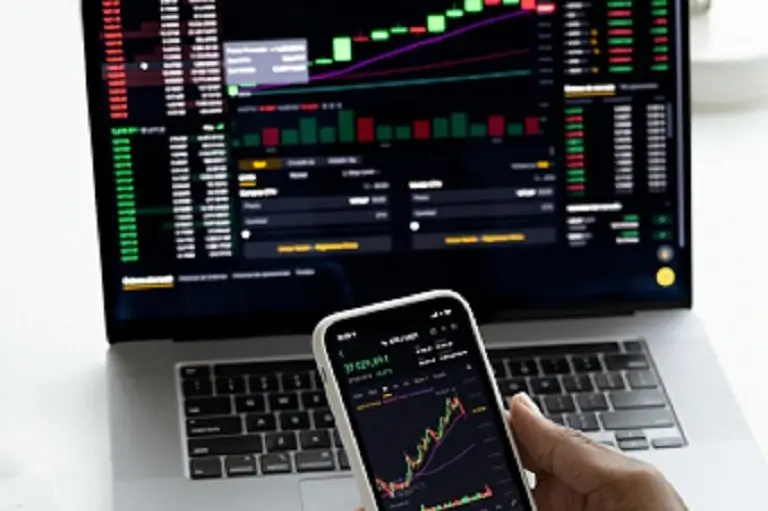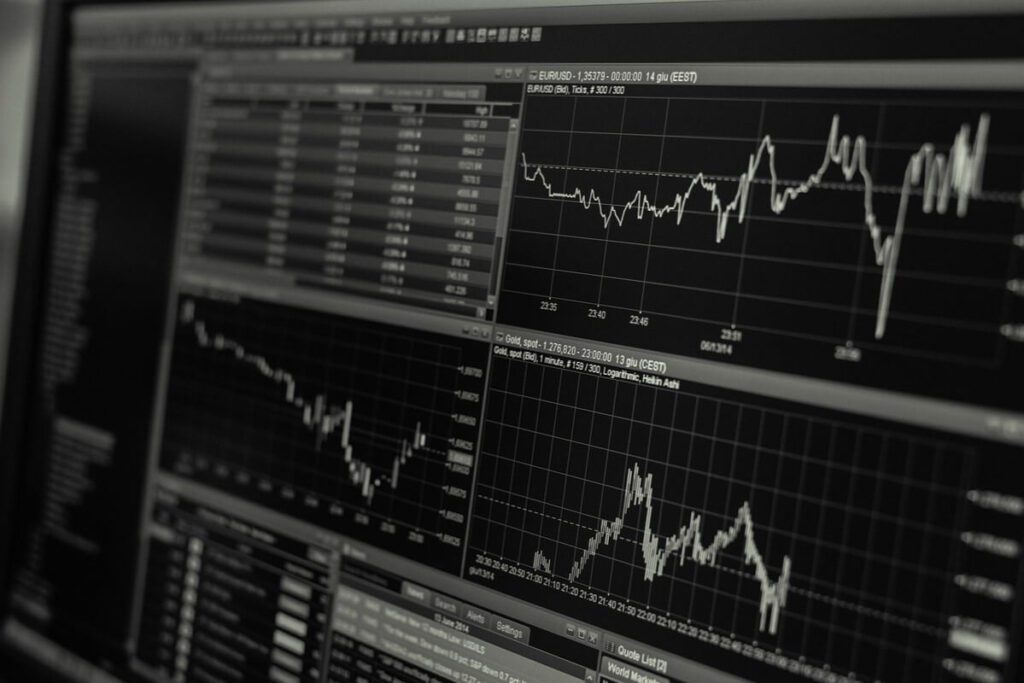In today’s fast-paced financial world, forex trading has emerged as a lucrative opportunity for those seeking to capitalize on the fluctuations in currency exchange rates. However, diving into the world of Forex without proper knowledge can be daunting. This comprehensive guide aims to equip beginners with essential knowledge, strategies, and tips to embark on their Forex trading journey confidently.
Understanding Forex Trading
Forex trading, short for foreign exchange trading, involves the buying and selling of currencies in the global market. Unlike traditional stock markets, Forex operates 24/7, making it accessible to traders worldwide. The primary goal of Forex trading is to profit from the fluctuations in currency prices by speculating whether a currency will strengthen or weaken against another.
Setting Up Your Forex Trading Account
Before diving into Forex trading, it’s crucial to choose a reliable broker and set up your trading account. Look for brokers with a good reputation, competitive spreads, and user-friendly trading platforms. Once you’ve selected a broker, follow their account opening procedures, which typically involve providing personal information and verifying your identity.
Learning the Basics of Forex Analysis
Successful Forex trading requires a solid understanding of fundamental and technical analysis. Fundamental analysis involves evaluating economic indicators, geopolitical events, and central bank policies to predict currency movements. On the other hand, technical analysis involves studying price charts and identifying patterns to make trading decisions.
Developing a Forex Trading Strategy
A well-defined trading strategy is essential for navigating the Forex market effectively. Whether you prefer scalping, day trading, or swing trading, your strategy should outline your entry and exit criteria, risk management rules, and profit targets. Remember to backtest your strategy using historical data to assess its viability before implementing it in live trading.
Managing Risk
Risk management is paramount in Forex trading to protect your capital from substantial losses. Limit your risk per trade to a small percentage of your trading account, typically 1-2%. Use stop-loss orders to automatically exit losing trades and adhere to proper position sizing to avoid overexposure.
Continuing Education and Improvement for Forex Trading
Forex trading is a dynamic field that requires continuous learning and adaptation. Stay updated on market news, economic developments, and trading strategies through reputable sources such as financial news websites, trading forums, and educational resources. Additionally, consider joining trading communities or seeking mentorship from experienced traders to accelerate your learning curve.
Implementing these steps will provide you with a strong foundation to navigate the complexities of Forex trading. However, the journey doesn’t end here. Let’s delve deeper into each aspect to ensure you’re equipped with the knowledge and skills necessary to thrive in the dynamic Forex market.
Understanding Market Psychology
Beyond technical analysis and economic indicators, market psychology plays a significant role in currency price movements. Emotions such as fear, greed, and herd mentality often drive market behavior, leading to price fluctuations that may seem irrational. Learning to recognize and control your emotions while trading is crucial for making rational decisions and avoiding impulsive actions.
Utilizing Trading Tools and Resources
In addition to fundamental and technical analysis, various trading tools and resources can enhance your trading experience. These may include economic calendars, trading journals, risk management calculators, and charting software. Experiment with different tools to find what works best for your trading style and preferences.
Exploring Different Trading Strategies
While developing a trading strategy is essential, it’s also beneficial to explore and experiment with different approaches. Whether you’re interested in trend following, countertrend trading, or range-bound strategies, understanding the strengths and weaknesses of each can help you adapt to different market conditions and improve your overall trading performance.
Adapting to Market Conditions
The Forex market is highly dynamic, characterized by periods of high volatility and relative stability. As a trader, it’s essential to adapt your strategy to changing market conditions. During volatile periods, adjust your risk management parameters and be prepared for sudden price movements. Conversely, during quiet market conditions, focus on preserving capital and avoiding overtrading.
Building a Support Network
Trading can be a solitary endeavor, but surrounding yourself with a supportive network of fellow traders can provide valuable insights, feedback, and encouragement. Join online trading communities, participate in forums, and attend trading seminars or workshops to connect with like-minded individuals and share experiences.
Evaluating Your Progress
Regularly assess your trading performance and reflect on your strengths, weaknesses, and areas for improvement. Keep detailed records of your trades, including entry and exit points, trade duration, and reasons for trade decisions. Analyze your results to identify patterns, refine your strategies, and continuously evolve as a trader.
Expanding your knowledge and refining your skills are ongoing processes in the world of Forex trading. Let’s explore some additional strategies and techniques to further enhance your trading prowess:
Diversifying Your Portfolio on Forex Trading
While Forex trading primarily involves currency pairs, diversifying your portfolio can help spread risk and potentially improve returns. Consider incorporating other asset classes such as stocks, commodities, or cryptocurrencies into your trading strategy. Diversification can provide additional opportunities for profit and reduce the impact of adverse market movements on your overall portfolio.
Harnessing the Power of Automation
Automation tools such as expert advisors (EAs) and algorithmic trading systems can streamline your trading process and execute trades on your behalf based on predefined criteria. These tools can help eliminate emotional biases and ensure consistency in your trading approach. However, it’s essential to thoroughly test and validate any automated strategies before deploying them in live trading.
Embracing Continual Learning
The Forex market is constantly evolving, influenced by geopolitical events, economic data releases, and technological advancements. Stay abreast of industry developments by engaging in continual learning through books, online courses, webinars, and seminars. Additionally, seek out mentors or join trading communities where you can exchange ideas and insights with fellow traders.
Practicing Discipline and Patience
Discipline and patience are virtues that separate successful traders from the rest. Stick to your trading plan and avoid deviating from your strategy based on impulsive decisions or emotions. Remember that losses are a natural part of trading, and maintaining discipline during drawdowns is crucial for long-term success. Exercise patience and avoid the temptation to chase quick profits or revenge trade after losses.
Adhering to Proper Risk Management for Forex Trading
Effective risk management is the cornerstone of successful trading. Establish clear risk-reward ratios for each trade and only risk a small percentage of your trading capital on any single trade. Set stop-loss orders to limit potential losses and adhere to proper position sizing to ensure that no single trade significantly impacts your overall account balance.
Practicing Mindfulness and Self-Awareness
Developing mindfulness and self-awareness can help you better understand your thought processes, emotions, and biases while trading. Take regular breaks to clear your mind and assess your mental state before making trading decisions. By practicing mindfulness, you can cultivate a calm and focused mindset, which is essential for making rational and informed trading choices.
Conclusion
Embarking on your Forex trading journey as a beginner can be both exciting and challenging. By understanding the fundamentals, setting up your trading account, mastering analysis techniques, developing a solid strategy, managing risk, and committing to ongoing education, you can increase your chances of success in the Forex market. Remember, patience, discipline, and perseverance are key virtues on the path to becoming a proficient Forex trader.
By incorporating these advanced techniques and strategies into your Forex trading journey, you can elevate your skills and increase your chances of long-term success. Remember that mastery in Forex trading is a journey rather than a destination, so stay committed to learning, adapting, and refining your approach as you progress. With dedication, perseverance, and a willingness to learn from both successes and setbacks, you can achieve your goals and thrive in the dynamic world of Forex trading.



